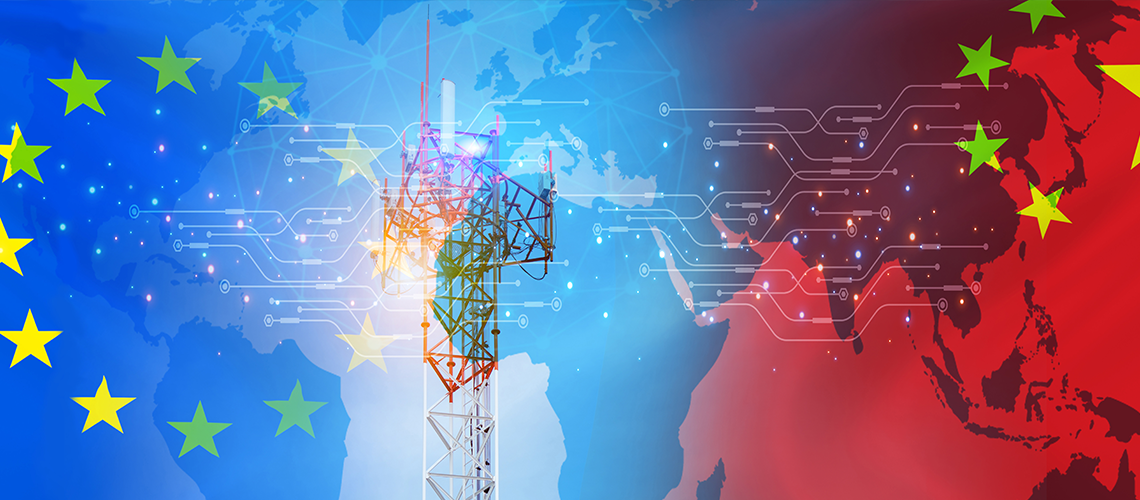China-Europe investment disrupted as EU countries tighten FDI regimes
Stephen Mulrenan, IBA Asia CorrespondentFriday 19 January 2024

In September, Germany announced that it plans to tighten its investment screening regulations, in a move designed to keep Chinese entities out of industries the German government believes are vital to national security.
China was Germany’s largest trade partner for the seventh straight year in 2022, with bilateral trade increasing year-on-year by 21 per cent. Concern over Germany’s increasing dependency reached a tipping point in early 2023, when it emerged that a Chinese shipping company had invested in a German asset that was subsequently classified as ‘critical infrastructure’.
German Chancellor Olaf Scholz gave the green light in October 2022 to China’s Cosco taking a 24.9 per cent stake in one of three terminals at Hamburg port. After further review, the German government finally approved the investment in May. However, in July, Berlin published its first ‘China strategy’, aimed at reducing German companies’ reliance on China.
‘Cosco’s acquisition of the Hamburg port terminal was a very big project, but the German government almost discarded it,’ said Jennifer Wang, a senior partner at AllBright Law Offices in Shanghai. Wang was speaking at the IBA Annual Conference in Paris this autumn as part of a panel session hosted by the IBA China Working Group and the IBA Asia Pacific Regional Forum. She added that outbound investment by Chinese companies in Europe has continued despite European countries taking a stricter view of foreign direct investment (FDI) from China this year.
The Chinese can still invest in areas that are not regulated. For example, in real estate, there are a lot of big distressed real estate companies
Karl Hepp de Sevelinges
Co-Managing Partner, Jeantet
According to a report published in May by the Berlin-based Mercator Institute for China Studies and New York-based Rhodium Group, FDI in Europe from China sank to $8.7bn in 2022, a 22 per cent decline from the previous year and its lowest point in almost a decade. The report highlighted that at least ten out of 16 investment deals pursued in 2022 by Chinese entities couldn’t be completed in the technology and infrastructure sectors, principally because of objections raised by national authorities in Denmark, Germany, Italy and the UK.
Paris-based Karl Hepp de Sevelinges, co-managing partner of Jeantet and another speaker on the panel, described Europe’s regulatory hurdles as a ‘grim challenge’ for Chinese companies. He cited the three main regulatory challenges facing Chinese companies as the EU FDI Regulation, the EU Foreign Subsidies Regulation (FSR) and various compliance rules and supply regulations.
‘But to think that these regulations were made to prevent Chinese investments is not totally right,’ said Hepp de Sevelinges. ‘There is a country in Europe that does not have these regulatory limitations and that’s Switzerland. It suffered the same decrease in Chinese investment as other European countries, which proves that it’s not only regulations that have an impact on business. It’s also about other criteria such as the pandemic and geopolitics.’
European motivation to put in place regulation governing FDI dates back to the 2007-2008 global financial crisis, after which China increasingly focused its FDI towards the European market. Germany, in particular, became a target due to its strong manufacturing base and leading technology companies.
In 2016, Chinese companies announced or completed purchases of German companies collectively worth €11.3bn. The most significant was the $5bn acquisition of industrial robotics manufacturer Kuka AG by Chinese home appliance maker Midea Group. That deal is now viewed as a watershed moment in the German discourse on China’s investment activities. ‘The acquisition was realised without the need for any authorisation and this triggered, at least in Germany, a willingness to put in place a regulation,’ said Hepp de Sevelinges.
‘France has probably the most complex regulations that prohibit or control foreign investment, but I don’t recall a Chinese investment that was forbidden,’ he adds, noting that these rules also limit investments coming from Germany or the Czech Republic, because they apply to European countries.
For Hepp de Sevelinges, the FSR is more problematic as it applies to companies worth over €500m that have received financial support from the state. ‘Once this happens, you have to advise the European Commission and, for many Chinese companies, it will be difficult to explain that they are not at all supported by the Chinese government,’ he explained.
He said the third regulatory hurdle – various compliance rules and supply regulations that target corruption and child labour/human rights abuses – restrict investment but also don’t target China specifically. ‘They […] are probably focused more on Africa. Although it’s not the highest hurdle, it is still a hurdle for investors coming from countries with different cultures and different work conditions’, said Hepp de Sevelinges.
Although Chinese companies were never previously blocked by the EU’s FDI review from investing in Germany, Wang admitted that the situation has changed dramatically due to Covid-19 and geopolitics and stated that regulatory hurdles such as the new FSR are a major problem for Chinese investors in Europe. They are ‘still interested in European markets and in manufacturing in sectors like the automobile industry,’ said Wang. ‘But to be successful in their investments in Europe, greenfield investment will be preferred by Chinese companies as they can create new local companies rather than attempt buyouts.’
Fellow panellist David Liu, Co-Chair of the IBA China Working Group and a partner at JunHe in Shanghai, said there are opportunities for Chinese companies in different industries that provide a good match in regards to the green policies of Europe. ‘Greenfield investment has dominated the past 20 years and accounted for more than 70 per cent of last year’s deals,’ he said. ‘This was mainly due to the EV [electric vehicle] sector, which saw the leading giants invest billions to set up plants in Germany, UK, France, and recently Hungary.’
While there’s an obvious need for technical cooperation between European and Chinese companies, Hepp de Sevelinges highlighted that the shift toward greenfield investments in EV batteries only partially offsets a steep decline in mergers and acquisitions in 2022. ‘We have been talking about greenfield investments because we’re happy to show the figures,’ he said. ‘But greenfield is not an alternative to an acquisition. Greenfield is complex: you need to buy land, get authorisation to build something, and basically you need to have the know-how yourself.’
In contrast, acquirors often purchase a company because they want to have the know-how that exists within that company, not to mention access to customers, intellectual property rights and a host of other things. ‘The Chinese can still invest in areas that are not regulated,’ said Hepp de Sevelinges. ‘For example, in real estate, there are a lot of big distressed real estate companies. I’ve not seen many Chinese investors looking at that, but it could be an opportunity.’
Image credit: Artinun/AdobeStock.com

